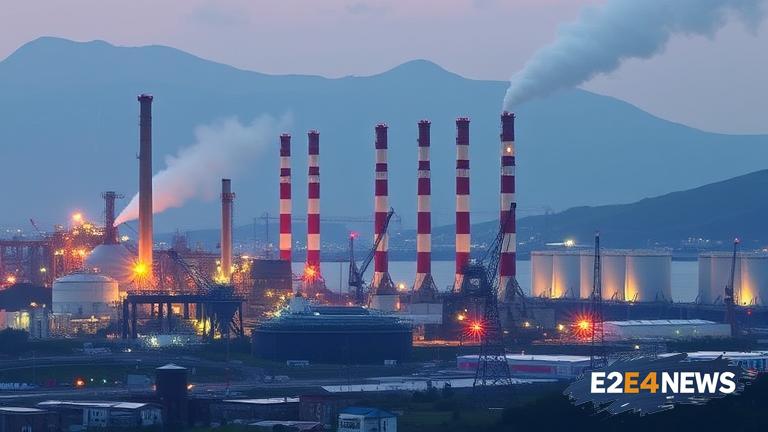Japanese steel and chemical producers, once at the forefront of carbon reduction efforts, are now pulling back from their ambitious targets. The decision comes as a result of rising energy costs, increased global competition, and a shift in government policies. The steel industry, in particular, has been hit hard by the surge in energy prices, making it difficult for companies to maintain their previous commitments to reducing greenhouse gas emissions. As a result, many steel producers are now focusing on short-term profitability rather than long-term sustainability goals. The chemical industry is also facing similar challenges, with companies struggling to balance their environmental responsibilities with the need to remain competitive in the global market. The Japanese government had initially set ambitious targets for reducing carbon emissions, but the recent shift in policy has given industries more flexibility to adjust their goals. This move has been met with criticism from environmental groups, who argue that it undermines the country’s commitment to addressing climate change. Despite the setbacks, some companies are still committed to reducing their carbon footprint and are exploring new technologies and innovations to achieve their goals. However, the overall trend suggests that Japan’s steel and chemical industries are prioritizing economic growth over environmental sustainability. The country’s reliance on fossil fuels and lack of investment in renewable energy sources have also contributed to the slowdown in carbon reduction efforts. Furthermore, the global economic downturn has led to a decrease in demand for steel and chemical products, making it even more challenging for companies to invest in sustainability initiatives. The Japanese government has announced plans to increase its use of renewable energy sources and reduce its reliance on fossil fuels, but the pace of progress remains slow. In the meantime, steel and chemical producers are taking a more cautious approach to carbon reduction, focusing on incremental improvements rather than radical transformations. The impact of this shift will be closely watched by environmental groups and industry analysts, who will be monitoring the effects on Japan’s carbon emissions and the global competitiveness of its steel and chemical industries. As the country continues to navigate the challenges of balancing economic growth with environmental sustainability, it remains to be seen whether Japan’s steel and chemical industries will be able to get back on track with their carbon reduction efforts. The government’s role in providing incentives and support for sustainability initiatives will be crucial in determining the outcome. In addition, the development of new technologies and innovations will be essential for reducing carbon emissions and improving the environmental sustainability of Japan’s steel and chemical industries. The international community will also be watching Japan’s progress closely, as the country’s actions will have implications for global efforts to address climate change. The steel and chemical industries are not the only sectors affected by the shift in government policies, as other industries are also reevaluating their sustainability goals. The automotive industry, for example, is facing similar challenges in reducing its carbon footprint, and the Japanese government’s policies will have a significant impact on its ability to achieve its goals. In conclusion, Japan’s steel and chemical industries are facing significant challenges in reducing their carbon emissions, and the recent shift in government policies has given them more flexibility to adjust their goals. While some companies are still committed to sustainability, the overall trend suggests that economic growth is being prioritized over environmental sustainability. The Japanese government’s role in providing incentives and support for sustainability initiatives will be crucial in determining the outcome, and the development of new technologies and innovations will be essential for reducing carbon emissions and improving the environmental sustainability of Japan’s steel and chemical industries.
